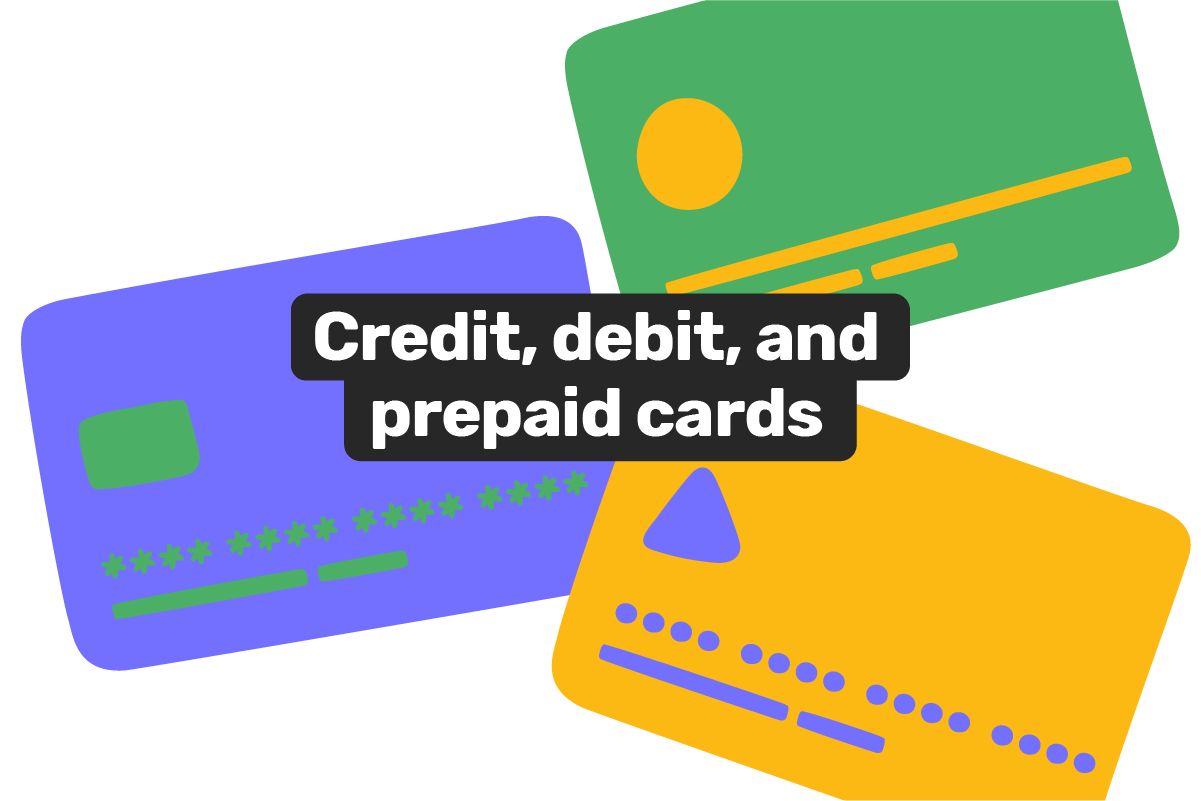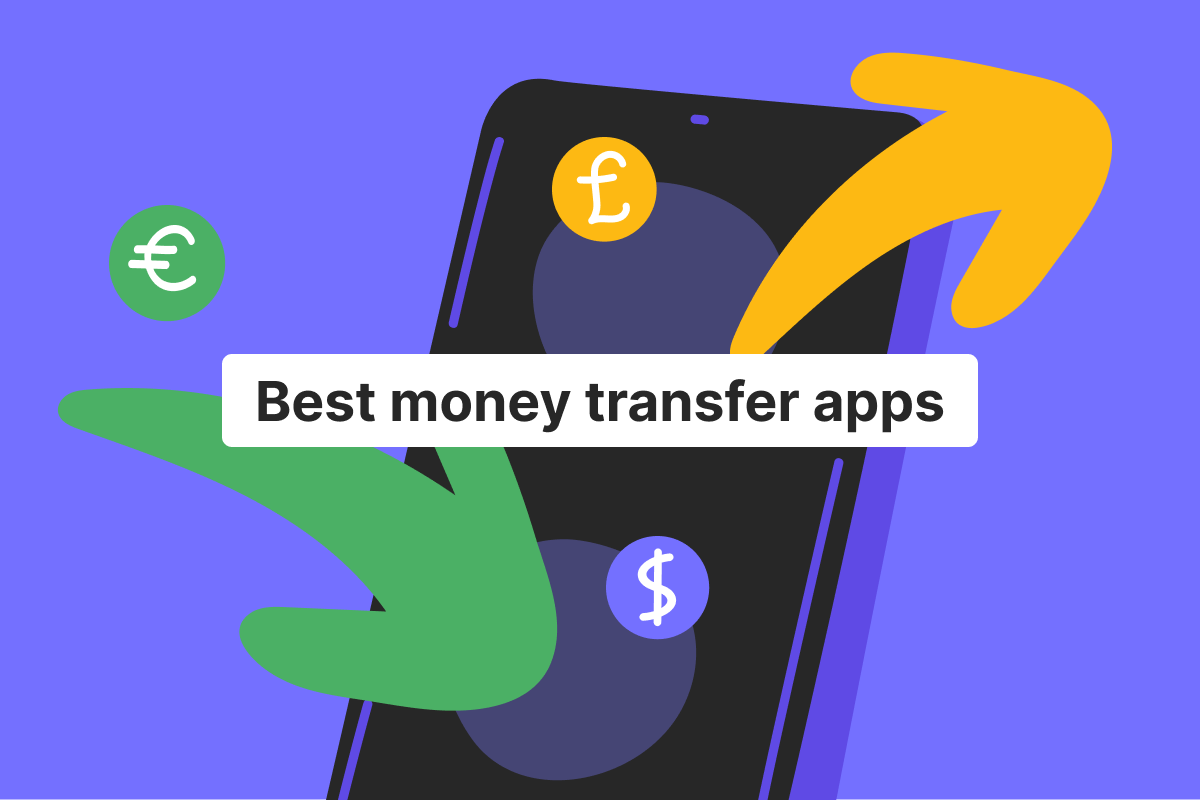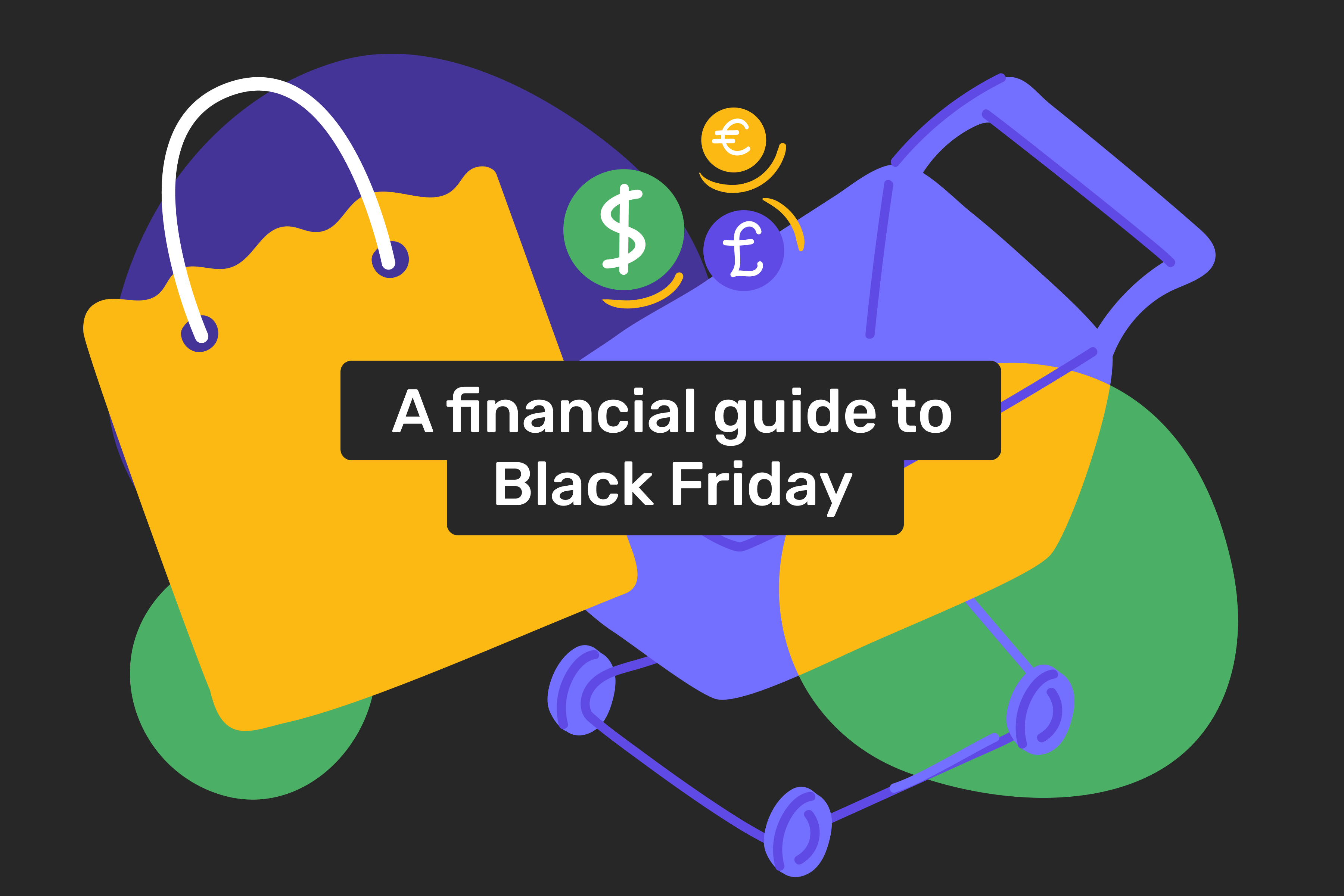Only a decade ago, a bank card was a tool to receive cash in the ATM. Then, cards became widely used for both online payments and the ones in physical stores. And just within the past 5 years, we’ve experienced a shift to digital wallets and virtual bank cards that can be used and saved on your smart devices. Having a card nowadays does not necessarily mean owning a physical card in your pocket or wallet to make cash withdrawals. However, bank cards still remain essential tools for managing your finances and making purchases.
As we are all still using bank cards (no matter whether physical or virtual ones), it’s important to understand why we have different cards and their functionality. This awareness will not only save you money and time. It will also make your banking experiences much smoother and more efficient. Read on, today Genome‘s team is talking all about prepaid cards, debit, and credit ones.
What is a debit card?
If you’ve ever questioned yourself what are debit cards, the answer is simple: they are the most common and widely spread bank cards all over the world. In other words, this is a basic card that you can receive if you have a current account. Here’s the trick: you can only order a debit card if you have a checking account. This bank card is connected with your account and whenever you make a payment, your balance decreases immediately.
Genome offers physical and virtual Visa debit cards for personal and business wallet users. The cards can be linked to any of your accounts. Make use of our cards when purchasing goods worldwide on the go or online in different currencies. For card pre-order, click here.
Open an account
in Genome online
Advantages of the debit card
Let’s find out why most people go for a debit bank card:
Safe
The card is linked to your current bank account, so you cannot accidentally overdraft. In some cases though, you can arrange an overdraft facility when opening a bank account. The available sum will be limited and depends on your regular income.
Easy to use
You can have both physical and virtual debit cards and add them to different digital wallets (ApplePay and GooglePay for example). In addition, you can check your account’s balance in no time in mobile or Internet banking.
Interest-free
With a debit bank card, you don’t accumulate any amount to pay interest on. Indeed, the money is taken directly from the checking account. In case you use an overdraft facility (if possible), the fee can be applied.
No annual charges
Typically you don’t have to pay for using a debit card unless you choose some premium pricing plan with additional benefits. Nonetheless, there can be some small requirements for free use. Such as at least one cash withdrawal per month or purchasing something in a physical store with a card.
Various perks available
The range of services that come with your debit bank card depends on your budget. For instance, if you choose a premium card, you gain access to such benefits as insurance packages for trips, warranty on your purchases, or priority customer service 24/7 (offers vary from provider to provider).
Disadvantages of the debit card
Debit cards are cool, but not perfect. Now we will discuss some of the drawbacks of these cards:
Don’t impact your credit limit
If you’re buying something with a debit bank card, you’re not borrowing from your provider. Thus, it doesn’t show whether you’re a reliable person when it comes to returning credit. If you’re looking to improve your credit history, it’s better to choose a credit card.
You cannot “borrow” much from your bank
Even though some financial services providers offer overdraft facilities with a checking account, this type of account is not designed for borrowing money. The same goes for debit cards because they are linked to these accounts.
Limited fraud protection
Once your current account is debited during a payment with a debit card (especially during online transactions), there are few chances you can get your money back. No additional protective mechanisms or protocols are in place to save your money.
What is a credit card?
A credit bank card is not linked to any account. The difference between a debit and a credit card is all about borrowing money. Once you pay with a credit card, your bank gives the necessary sum and then grants you a credit. All this is mentioned in the agreement that you sign when applying for the credit card. Usually, you will need to pay out your credit until the next month. Otherwise, the interest on this sum will be added up. That’s why this card is called a credit one. Basically, you do not own any money but always take a loan from a bank or financial provider that issued it.
It’s also possible to transfer money from your credit card to your bank account. More info on this in the Genome blog.
Advantages of the credit card
No current account needed
Suitable for those who don’t want to open a current account or already have one with another provider. To receive a credit card, you only need to sign an agreement with the chosen bank.
Impacts your credit history
If you want to build up your credit score, a credit bank card is a great way to do this. If you’re borrowing money and paying them out in time, it proves that you’re a good candidate for credit.
More secure than cash
It’s still safer to use a credit card than to carry cash around. If your bank card gets lost or stolen, you can always disable it by contacting your financial provider or bank to prevent any fraudulent transactions.
Rewards points
Some credit card companies bring to the table such rewards as airline miles or a cashback for using a card regularly.
Disadvantages of the credit card
High-interest rates
Coupled with annual fees, interest rates on a credit bank card can be quite costly.
It’s easy to spend more
You know that you can spend a lot with a credit card (sometimes, even more than you should) because the card issuer lends you this money. Moreover, you cannot check the available balance as often and as easily as it’s with a debit bank card. Unsurprisingly, if you’re not careful, the access to money makes you buy more even without realizing it. Remember to use the sum that you can pay back next month to avoid digging yourself a hole with a credit.
What is a prepaid card?
This card works similarly to debit bank cards but with one exception – you can only spend as much as you top-up. Payment providers issue such cards and link them to online accounts (so-called bankless accounts) within electronic wallets.
It means that you do not open a traditional bank account with a high-street organization. Nevertheless, most financial operations are still available because you’re provided with an IBAN account. You can receive and send transfers (including direct debits and standing orders), order a physical or virtual card, receive cashback, etc. The range of such services is up to your financial provider.
You can top-up such an account in different ways: by linking another bank card, making a transfer to an account, and also by Apple or Google Pay. Only after top-up, you will be able to use this money with the help of a prepaid card.
Advantages of the prepaid card
Easy to order
In most cases, you can open a bankless account online by providing your personal information within a few days. The same goes for prepaid cards: you can create virtual prepaid cards and order physical ones right from your mobile application or web application.
Easy to use and reload
You can do all the financial operating just in a few clicks from your mobile application. You can also block a card and unblock it whenever it’s needed.
Less risk of overspending
You can only spend as much as you load.
An alternative to cards issued by banks
You can open an online account and receive your prepaid card much faster and without any effort.
Safer than cash
Just like any other bank card, prepaid cards guarantee more security than using real money on a daily basis.
Are prepaid cards safe to use?
Most payment providers that issue prepaid cards do not have a banking license. It means that your funds are not protected by a deposit guarantee fund as it’s with regular banks. Still, prepaid cards remain a rather safe and secure option for those who do not want to use cash for their daily purchases and expenses.
Prepaid card vs. debit card vs. credit card
We’ve prepared a short overview of all the cards in the table:
Debit card | Credit Card | Prepaid card | |
How do I load money? | Linked to your current bank account | Line of credit you can access with this card | Linked to your online IBAN account in a digital wallet. You can top-up this account by transfer or withdraw money by linking other debit bank card |
Does it change my credit score? | No | Yes | No |
Interest? | No | Yes if you do not pay out your debt until the due date every month | No |
Prepaid card vs. debit cards
The difference between a debit and prepaid card is the following: the first one is connected to your checking account and the second one – to your bankless account in a digital wallet. That is why you need to have money in these accounts if you want to use a card. To a large extent, the range of services for both cards is pretty similar to most banks or payment providers: you can send and receive transfers, order virtual cards, and make ATM withdrawals.
Prepaid card vs. credit cards
By ordering a credit bank card you receive a line of credit from your financial provider. There’s a limit for this credit and you cannot spend more. You will have to pay back this sum within the next month until the due date. Otherwise, your debt increases because of the high-interest rates. With a prepaid card, you can only spend as much as you load on it.
What is the best card for you?
Let’s go through the most important factors to help you choose whether it’s prepaid, debit, or credit card that you need:
Security
Check if your funds are protected. If your provider does not have a banking license, you can lose all your money if they go bankrupt.
Fees and charges
Don’t forget to get familiar with annual fees, ATM withdrawal charges, and the rates for all the other financial operations you will do with your card.
Mind your needs
Double-check if your online account or card satisfies all your requests. For example, if you need traveling insurance or premium service, you will probably go for paid pricing plans.
Mobile/web application
If you prefer using your card via digital wallets, make sure that your provider offers simple and intuitive web and mobile applications.
Credit score
If you need to build up your credit score and if you will be able to pay back your credit with no issues, the only option here is ordering a credit bank card.
Open an account
in Genome online
FAQ
Is a prepaid card also called a debit card?
Prepaid cards sometimes are called prepaid debit cards because you need to top-up your account first to use money. It works just like with a regular debit bank card – if your current account is empty, you cannot pay with a card.
Is prepaid a credit card?
No, prepaid cards work quite the opposite to credit bank cards. With a credit card, you always borrow from your financial provider and have to pay back this sum in time. Otherwise, you will have to pay pretty high interest. Prepaid cards, in their turn, will only work if you put money on your online account linked to the card, beforehand. Thus, you’re not borrowing funds but only using your own money.
What are the disadvantages of prepaid cards?
First of all, not all prepaid cards and the online accounts that are linked to them are protected by a deposit guarantee fund. In other words, if the payment provider of such a card goes bankrupt, you can lose all your money. Secondly, prepaid cards provide limited services: fees and limits can be imposed on cash withdrawals, annual payments, and so on.
Do prepaid cards have hidden fees?
Yes, but it depends on your finance provider. For instance, some of them offer paid pricing plans but additionally, you will have to pay for each ATM withdrawal or top-up, etc. The best advice is: get familiar with all potential charges before choosing a prepaid card.





